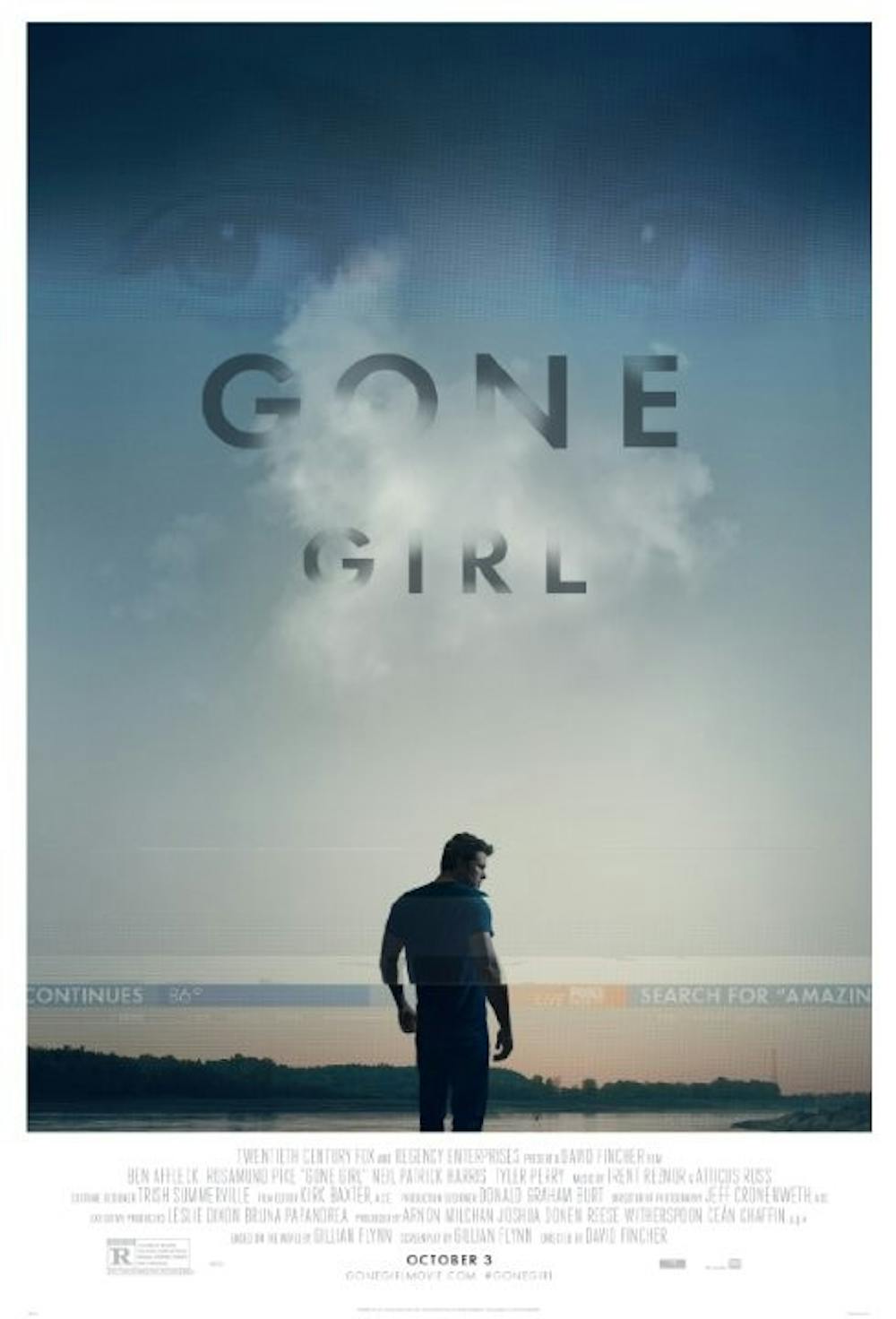David Fincher knew what he signed up for when he chose to direct the film adaption of Gillian Flynn’s best-selling novel “Gone Girl.” Granted, book-to-movie productions happen often enough in Hollywood that audiences typically don’t think twice. “Gone Girl,” however, is a different story entirely. Not only did the book dominate bestseller lists in 2012, but its reputation rests almost entirely on its ability to captivate audiences, leading them to devour the story in days if not hours.
Under pressure from the novel’s popularity, the film adaptation could have had many things go wrong. From the moment Flynn signed off the book rights, the film’s production has been under close watch from critics and fans alike, who have questioned whether the convoluted story can be equally as effective as a film.
To answer skeptics: it does.
Fincher not only manages to pull off Flynn’s psychological thriller, but he does so beautifully. It’s a masterful film, illustrating the sinister and corrupted side of marriage which can be hidden under a veil of perfection.
The premise is simple. Amy Elliott Dunne (Rosamund Pike) — a bright, young writer — goes missing and her husband, Nick Dunne (Ben Affleck), is suspected of murdering her. Two detectives (played by Kim Dickens and Patrick Fugit) investigate her disappearance through a string of clues Amy left as a fifth-year anniversary present for Nick. The beginning of the film alternates between the present day investigation and flashbacks to the couple’s relationship as narrated through Amy’s diary. Through these flashbacks, the viewer can glimpse how the couple’s romantic love deteriorated over time.
It’s a classic murder-mystery archetype, but there’s feeling of superficiality to it all. As the investigation plays out, Nick and Amy’s marriage proves to be more complicated than it seems, leaving unsuspecting viewers with more questions than answers.
Undoubtedly, the film’s strength lies in its actors. Affleck fits the persona of Nick Dunne well — he’s handsome, charming and confident without being overly arrogant. It is Pike, however, who is the true star of the show. She delivers a superior performance, managing to complement Affleck while maintaining a distinctive role.
Pike elicits a multifaceted Amy — sophisticated and likable, yet also too-good-to-be-true. When the storyline picks up, she easily adapts to character changes without losing her defining characteristics. Even during on-screen absences, Pike’s performance of Amy is felt, carrying the storyline toward a surprising plot twist.
Despite the show's general lack of supporting actors, the small roles hold their own with Affleck and Pike. Carrie Coon stands out as Nick’s sister Margo, lending the film occasional bits of humor. Even Neil Patrick Harris and Tyler Perry — primarily known for their comedy — succeed as Amy’s former boyfriend Desi Collings and Nick’s lawyer Tanner Bolt, respectively. They even offer a few laughs while maintaining the film’s dark mood.
The narrative is made all the more haunting by the director’s aesthetic choices. From the lighting to the music, Fincher creates an ominous and eerie atmosphere quite well. In each camera shot, there is an understated feeling of suspicion beneath the shallowness of suburbia. This complements the storyline well, prompting viewers’ wariness of the film’s explicit narrative.
Meticulous attention to detail paired with superb acting results in a film as beautiful and haunting as the original. “Gone Girl” will keep audiences guessing, presenting a story that won’t disappear from the minds of viewers anytime soon.







